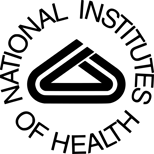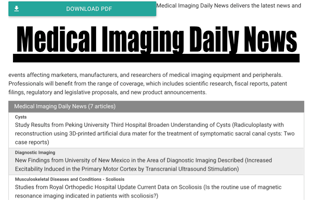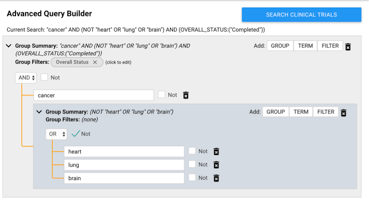←Back to resources Welcome back to BUTTER tips and tricks! Previously we shared posts on how to get...
The Best Research Alert Services: How to Stay On Top of Your Field
←Back to resources
Scientific and scholarly researchers have to stay up to date. Keeping up with essential discoveries keeps your knowledge current, saves time and money, and can lead to new, unexpected discoveries.
Academic publications are expensive, and the world’s leading academic institutions are fighting to make research free and open access. But until then, researchers need to be tactical, and alerts are a key time- and cost-saving measure.
One approach is to choose the journals you need the most and subscribe to that journal’s RSS feed or table of contents. However, there are also research alert services that cover tens, hundreds, or even thousands of publications, allowing you to specify alerts based on topics or even customized keywords.
Here are some of the different types of research alert services out there, and which ones might be a good fit for you.
Academic Journal and Publisher Alerts
Most academic and scholarly journals or publishers offer alerts via email on their upcoming articles and editions. These alerts are usually the fastest and can often be received for free—of course, journal subscription not included.
- American Chemical Society, American Geophysical Union, American Mathematical Society: Email alerts.
- The American Society for Microbiology: Alerts for topic, source, and author.
- National Academies of Science, Engineering, and Medicine: Alerts on about 20-25 broad scientific topics.
- National Institute of Health: NIH-specific updates delivered by email or RSS feed.
- Nature Publishing Group: Alerts on a wide variety of journals.
- Springer Press: Alerts that can be customized per source across almost 3000 journals and 500 subject areas.
- University of Chicago Press: Email alerts when new books in topics of your choice are released.



Database Alerts Solutions
Scholarly databases will have a much wider variety of articles available than any individual journal or publisher. Some databases also provide powerful technological solutions for research that can make an investment well worth the cost.
- Academic Search Complete: An EBSCO database for scholarly research in all fields covering 6,500 journals with email alerts.
- BUTTER: A research solution with over 20,000 peer-reviewed and global sources. Alerts for authors, topics, keywords, and more. Reports on the scholarly articles within the database, providing coverage and description of research..
- Feedly: A news aggregator that allows a user to susbcribe to RSS feed of any online website or publication and receive the results in a minimalist application.
- Google Scholar: Custom alerts for nearly 100 million scholarly articles, covering a wide historical range. Google Scholar indexes any academic source that can be found with the Google search engine.
- Project Muse: Provides alerts on journals and books in the humanities and social sciences from 200 sources.
- Pubcrawler: Scans and provides daily updates for online publication databases on custom topics and keywords.
- QUOSA: A research solution for the pharmaceutical industry. Provides alerts on new research and business developments in the pharma world.
- Science.gov: Offers email alerts on scientific topics and keywords from over 2,000 sources.
- Scopus: Database of scholarly literature abstracts. Provides alerts on authors and topics from 5,000 sources.
- Stork: Delivers alerts on keywords and authors for publications and grants

.jpeg?width=126&name=download%20(1).jpeg)
Social Media
Experts interviewed by Science Magazine agree that Twitter is a great way to stay up to date with important research. Following influential researchers in your field and exploring the research that they share is a great way to start integrating social networking into your research process.
How to Decide
Different researchers will have different needs. If you only care about a single source, then table of contents alerts from your favorite scholarly journal is your best bet. If you need something more comprehensive, or if your specialty crosses industries or fields, database alerts are far superior.
Within the world of database alerts, the choices vary widely in terms of coverage and cost. Some of these databases, like Feedly or Stork, are minimalist and user-friendly. Some, like EBSCO, only cover scholarly journals, while a more comprehensive source like BUTTER also includes patent and trademark applications. And while a comprehensive but bare-bones option like Google Scholar provides links to or previews of the scholarly article, a more complex application like BUTTER includes reports that summarize the contents and results of the original source.
While the open-access age hasn’t yet arrived, powerful research assistants certainly have.

.jpg?width=50&name=DSC_0028%20(1).jpg)


